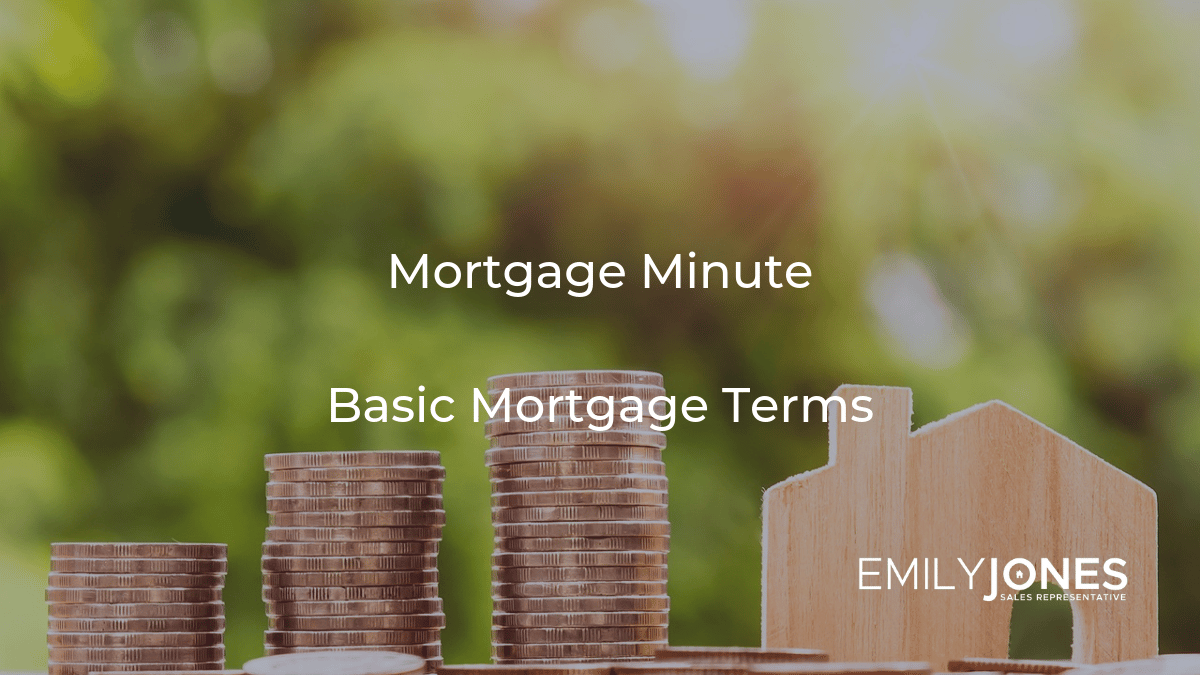
02 Mar Basic Mortgage Terms
Looking at buying your first home, making an upgrade, or renewing a mortgage?
Here are a few basic mortgage terms you need to know as a homeowner.
Pre-approval
This is the first step to take when considering buying any property. The mortgage lender reviews your credit history, income and assets to determine how much you would be allowed to borrow. A pre-approval is essential to give you a realistic idea of what price range you should be looking within. Another point of note is that a pre-approval will hold an interest rate for you for (typically) 90-120 days. Pre-approvals do expire! So if you were pre-approved last spring, if you are re-starting your home search, you will need a new pre-approval.
Fixed and Variable Rate Mortgages
When looking at the terms of your mortgage, you will have to choose between a fixed or variable rate. A fixed rate means interest payments will remain the same throughout the term of your loan, as your interest rate will remain at one fixed point. A variable rate means that it will fluctuate based on the Bank of Canada’s posted rates. Some lenders have the variable payment fixed whereas others may not.
Collateral Mortgage
If you have 20% down, you could consider a collateral mortgage. This would allow you to have a fixed mortgage, a variable mortgage, and a secured credit line(s). When determining what mortgage option is right for you, it’s important to look beyond the rate and consider all aspects. Penalties, pre-payment options, payment flexibility, payment frequency, and many other aspects of the mortgage can factor into your decision. You can make your choice of terms based on how much risk you can afford and are comfortable with.
Appraisal
Your lender will want to know the value of the property being purchased to determine if the price you’re paying is reasonable. Sometimes an appraiser will visit the home, but often today it can be quickly completed electronically and behind the scenes.
Within the market, we consider there to be a market value (how much someone is willing to pay) and an appraised value (how much a regular buyer would be willing to pay for the home under regular circumstances). Sometimes these numbers vary. For example, in the Spring of 2017, competition for properties was through the roof and people were paying unprecedented amounts for a home. This was the market value – how much someone was willing to pay. However, it may not have been the appraised value. If that same buyer was not competing with ten other offers, what would they pay? Questions about this process can be addressed by your Realtor or mortgage lender.

